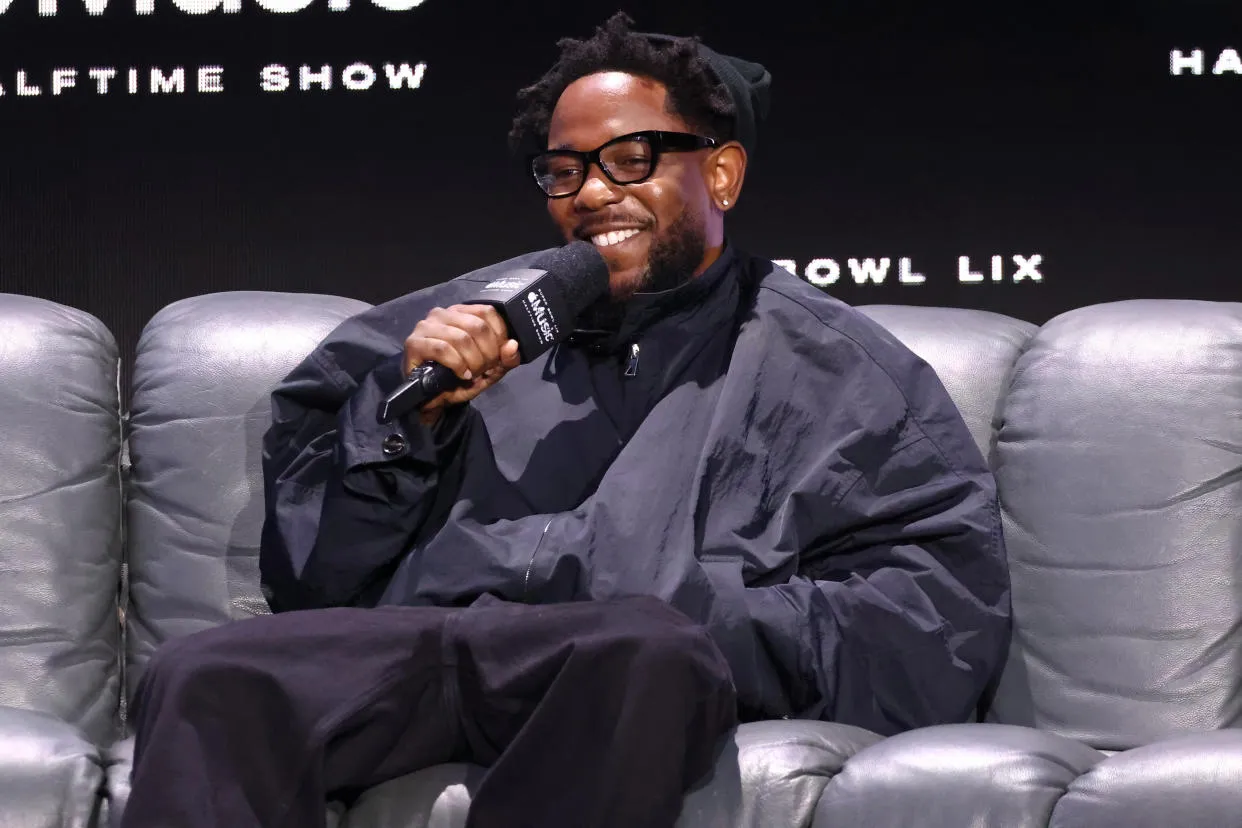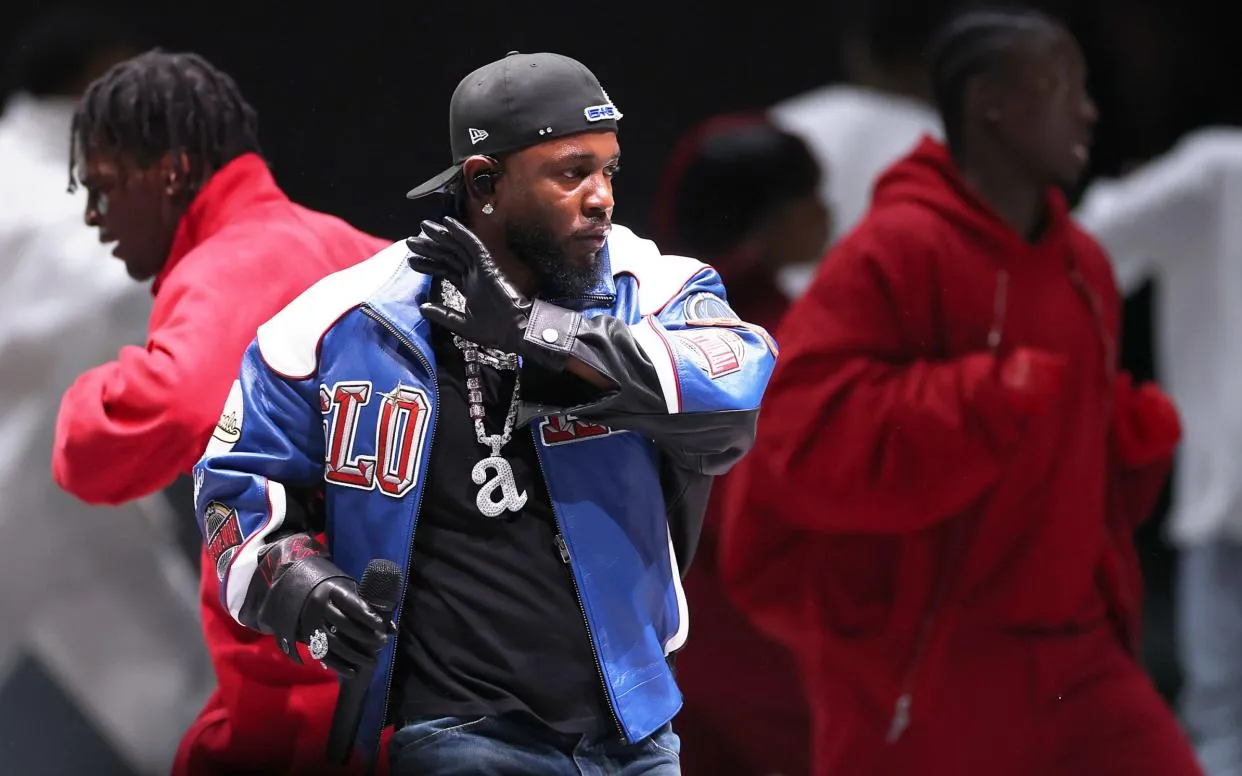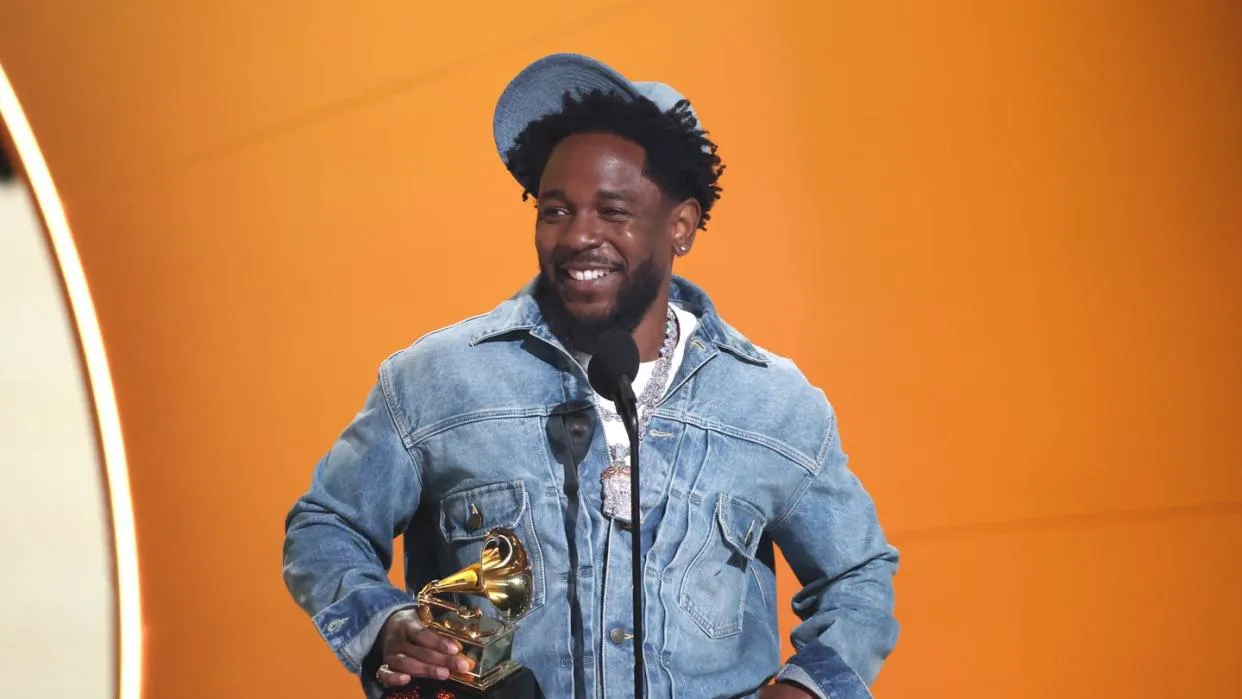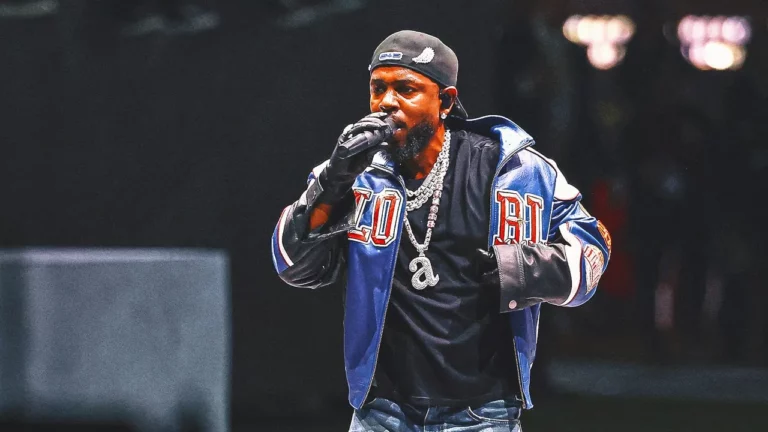In the rapidly evolving world of hip-hop, few names resonate as profoundly as Kendrick Lamar. The year 2024 saw him not only dominating headlines but also solidifying his place in music history with an electrifying Super Bowl LIX halftime performance. Despite the ongoing lyrical feud with Drake, which polarized fans, Lamar’s influence stretched far beyond mere controversy, culminating in a triumphant sweep at the 2025 Grammy Awards. His diss track “Not Like Us” against Drake clinched awards for Best Rap Song, Best Rap Performance, and three additional Grammys, marking a pinnacle in his career.

The Super Bowl Stage: Not Just a Performance, but a Cultural Statement
On a chilly evening in New Orleans, in front of a packed Caesars Superdome with 80,000 live spectators and over 100 million watching worldwide, Lamar delivered a performance that was more than just a musical showcase; it was a cultural statement. Despite the grandeur and massive audience, the intriguing aspect of this iconic performance lay in its financial backdrop—Lamar wouldn’t receive a traditional artist’s fee. This strategic decision by the NFL, to not pay halftime performers directly, instead covering only production costs, highlights a unique aspect of the event. The league bets on the global exposure artists receive, which arguably compensates through increased streaming and media visibility.
For instance, following a similar exposure in 2024, Usher experienced a staggering 550% spike in his streaming numbers post-Super Bowl, according to Forbes. Kendrick Lamar, fresh from his Grammy victories, was expected to see a similar surge. The artist himself seemed unfazed by the lack of direct compensation, focusing instead on the broader impact of his presence at such a prestigious event.

Dynamic Duos: Kendrick and SZA Take the Stage
Adding to the spectacle, Lamar was joined by SZA, a collaboration that goes back to their hit “All the Stars” from the *Black Panther* soundtrack. Their chemistry on stage, blending Lamar’s sharp lyrical prowess with SZA’s haunting vocals, was a highlight of the halftime show. They performed hits like “Luther” from Lamar’s latest album GNX and the crowd-favorite “All the Stars,” which had fans both in the stadium and at home on their feet.
Interestingly, the performance also included a moment that none anticipated—Serena Williams making a cameo during “Not Like Us,” performing a crip walk that sent shockwaves through the audience and was a viral moment online.
Lamar’s Lyrics: More Than Just Music
Kendrick Lamar’s “Not Like Us” has stirred more than just fan excitement; it has sparked controversy and legal battles. The track, which has amassed over a billion streams, accuses Drake of serious misdeeds, leading to a lawsuit against Universal Music Group for its release and promotion. Despite these tensions, Lamar’s artistic vision and social commentary remain uncompromised, reflecting his status not only as a music icon but as a pivotal cultural voice.

A Super Bowl to Remember
Despite the absence of a paycheck, Kendrick Lamar’s Super Bowl halftime show was a monumental success, contributing to a night where the Philadelphia Eagles clinched a decisive victory over the Kansas City Chiefs. The event was more than just a game; it was a celebration of cultural powerhouses, a showcase of musical genius, and a statement on the intersection of sports, music, and cultural discourse. As the industry continues to evolve, performances like Lamar’s not only redefine what it means to be an artist in the spotlight but also highlight the profound impact music can have on society’s biggest stages.
